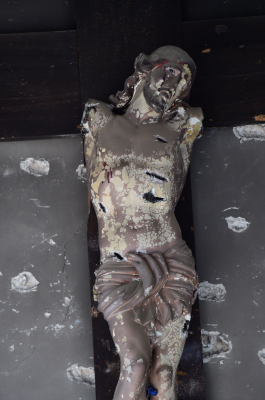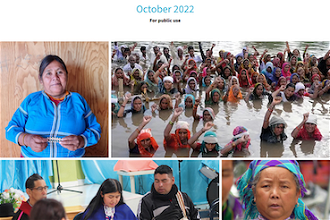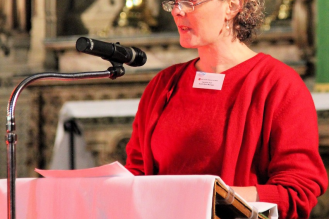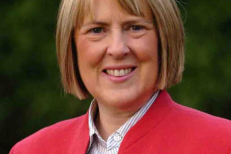If we do not stand up for Christians, who will?

Damaged crucifix, Syria. ACN
The Freedom of Religion or Belief ministerial level conference took place during an eventful week in Westminster. Persecuted minority groups from across the globe testified about the hardship faced when exercising the most basic human right: to practice a religious faith, to convert to another faith, or not to follow the faith prescribed by the state.
Speakers from the Yezidi, Sikh, Muslim, Ahmadi, Chaldean Christian, humanist and other communities contributed both inspiring and dispiriting stories. Dozens of diplomats pledged that their governments would uphold Article 18 of the Universal Declaration of Human Rights (the right to freedom of religion or belief).
Also this week, the non-partisan NGO Genocide Watch reported that in the first six months of 2022, 2,543 Christians were killed by Islamist extremists in Nigeria. Yet, whenever this matter is raised by concerned UK Parliamentarians, officials warn them not to ascribe sectarian motives of the killers, as if by asking the question they are stirring up trouble.
British ministers continue to avoid stating the obvious: that when well-armed militia enter a Nigerian village yelling Allah 'akbar, (God is great) and kill only the Christians while leaving Muslim residents unharmed, there is a sectarian element.
I have interviewed Christians in Plateau State in Nigeria who have witnessed the security services looking the other way, as villagers are slaughtered by jihadists. Rights groups have complained that security services have suddenly vanished before Islamists arrive at schools and kidnap children.
Meanwhile, the UK gives the Nigerian government £258 million in aid a year (2019 figures). The highest recipient of British development funding is the government of Pakistan (£305m) which is also frequently cited by rights groups for allowing the persecution, murder and imprisonment of Christians and other minority faiths, often accusing them without evidence of blasphemy.
In Sudan, the optimism arising from the overthrow of the Islamist regime of Field Marshall Omar al-Bashir in 2019 has gone, and with it the hopes that Christians would be treated as equal citizens. According to Bushra Gamar from the non-partisan Human Rights and Development Organisation (HUDO), the Muslim Brotherhood whose ideology guided Bashir's regime are back in power.
"After the military coup in October 2021 which dissolved the transitional government, the situation worsened in Sudan. For instance, last week four Christians were arrested in Zalingei in Darfur, taken from their church. Their holy books and loud speaker were confiscated by police. They are still under detention in Zalingei prison, accused by apostasy. Yet there is no article in the Sudan criminal penal code criminalizing apostasy. The previous article (article 126) was revoked in 2020, but the authorities are ignoring that."
What Should We Do?
The message emerging from the Freedom of Religion or Belief Ministerial was that we should all support the rights of every person to follow their beliefs without fear. But if Christians do not make a particular effort to draw attention to the persecution of their coreligionists in Nigeria, Sudan, Pakistan, China or the Middle East, then who will?
This acknowledgement places a special burden on Christians who take it for granted that they can worship freely. It is never a futile effort to write to elected representatives, reminding them that the UK has soft power in the form of aid and diplomacy, and that our taxes should not be given to governments which are oppressing Christians. At the least, we should require our aid recipients to investigate atrocities against Christians and end the current culture of impunity.
If an MP receives more than five messages on a topic (individual emails or mailed hard copy letters, not mass emailed petitions or identical top-and-tailed emails) from constituents, it is considered a veritable landslide of opinion. In 1994, the late Senator Paul Simon of Minnesota said that if he had received 50 letters about the Rwandan genocide from his constituents, he would have been empowered to demand that the US State Department took action to stop the slaughter. That should inspire us all to put our prayers into action for the sake of Christians who need our help.


















